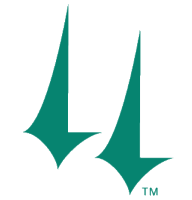
Churchill Downs Inc
NASDAQ:CHDN


| US |

|
Johnson & Johnson
NYSE:JNJ
|
Pharmaceuticals
|
| US |

|
Berkshire Hathaway Inc
NYSE:BRK.A
|
Financial Services
|
| US |

|
Bank of America Corp
NYSE:BAC
|
Banking
|
| US |

|
Mastercard Inc
NYSE:MA
|
Technology
|
| US |

|
UnitedHealth Group Inc
NYSE:UNH
|
Health Care
|
| US |

|
Exxon Mobil Corp
NYSE:XOM
|
Energy
|
| US |

|
Pfizer Inc
NYSE:PFE
|
Pharmaceuticals
|
| US |

|
Palantir Technologies Inc
NYSE:PLTR
|
Technology
|
| US |

|
Nike Inc
NYSE:NKE
|
Textiles, Apparel & Luxury Goods
|
| US |

|
Visa Inc
NYSE:V
|
Technology
|
| CN |

|
Alibaba Group Holding Ltd
NYSE:BABA
|
Retail
|
| US |

|
3M Co
NYSE:MMM
|
Industrial Conglomerates
|
| US |

|
JPMorgan Chase & Co
NYSE:JPM
|
Banking
|
| US |

|
Coca-Cola Co
NYSE:KO
|
Beverages
|
| US |

|
Walmart Inc
NYSE:WMT
|
Retail
|
| US |

|
Verizon Communications Inc
NYSE:VZ
|
Telecommunication
|
Utilize notes to systematically review your investment decisions. By reflecting on past outcomes, you can discern effective strategies and identify those that underperformed. This continuous feedback loop enables you to adapt and refine your approach, optimizing for future success.
Each note serves as a learning point, offering insights into your decision-making processes. Over time, you'll accumulate a personalized database of knowledge, enhancing your ability to make informed decisions quickly and effectively.
With a comprehensive record of your investment history at your fingertips, you can compare current opportunities against past experiences. This not only bolsters your confidence but also ensures that each decision is grounded in a well-documented rationale.
Do you really want to delete this note?
This action cannot be undone.

| 52 Week Range |
111.98
147.45
|
| Price Target |
|
We'll email you a reminder when the closing price reaches USD.
Choose the stock you wish to monitor with a price alert.

|
Johnson & Johnson
NYSE:JNJ
|
US |

|
Berkshire Hathaway Inc
NYSE:BRK.A
|
US |

|
Bank of America Corp
NYSE:BAC
|
US |

|
Mastercard Inc
NYSE:MA
|
US |

|
UnitedHealth Group Inc
NYSE:UNH
|
US |

|
Exxon Mobil Corp
NYSE:XOM
|
US |

|
Pfizer Inc
NYSE:PFE
|
US |

|
Palantir Technologies Inc
NYSE:PLTR
|
US |

|
Nike Inc
NYSE:NKE
|
US |

|
Visa Inc
NYSE:V
|
US |

|
Alibaba Group Holding Ltd
NYSE:BABA
|
CN |

|
3M Co
NYSE:MMM
|
US |

|
JPMorgan Chase & Co
NYSE:JPM
|
US |

|
Coca-Cola Co
NYSE:KO
|
US |

|
Walmart Inc
NYSE:WMT
|
US |

|
Verizon Communications Inc
NYSE:VZ
|
US |
This alert will be permanently deleted.
 Churchill Downs Inc
Churchill Downs Inc
Churchill Downs Inc
Investor Relations
Churchill Downs Incorporated, founded in 1875 and famously home to the Kentucky Derby, has cultivated its brand into an iconic player in the horse racing industry. Nestled in the heart of Louisville, Kentucky, the company's centerpiece is the Churchill Downs Racetrack, where the annual "Run for the Roses" captivates millions. However, Churchill Downs Inc. has transitioned well beyond just hosting horse races; it leverages its historic reputation to draw in spectators and bettors, both at the track and across its burgeoning digital platforms. These events not only rake in substantial revenue from admission fees, broadcasting rights, and concessions but also create a robust ecosystem for gambling, which is a significant revenue pillar.
Over the years, the company has strategically diversified its portfolio, crafting a multifaceted business model. Alongside its physical racetracks, Churchill Downs Inc. has expanded into the realm of online wagering, notably with its TwinSpires platform, allowing users to place bets from the comfort of their homes on a variety of sports and racing events. Furthermore, its acquisition strategy has been keenly focused on regional casinos and gaming properties, with a growing presence across states in the U.S., underscoring a deliberate move to capture a larger share of the gaming market. This blend of tradition and innovation has enabled Churchill Downs Inc. to remain a heavyweight in the horse racing industry while tapping into broader gambling trends that continue to evolve.

Churchill Downs Incorporated, founded in 1875 and famously home to the Kentucky Derby, has cultivated its brand into an iconic player in the horse racing industry. Nestled in the heart of Louisville, Kentucky, the company's centerpiece is the Churchill Downs Racetrack, where the annual "Run for the Roses" captivates millions. However, Churchill Downs Inc. has transitioned well beyond just hosting horse races; it leverages its historic reputation to draw in spectators and bettors, both at the track and across its burgeoning digital platforms. These events not only rake in substantial revenue from admission fees, broadcasting rights, and concessions but also create a robust ecosystem for gambling, which is a significant revenue pillar.
Over the years, the company has strategically diversified its portfolio, crafting a multifaceted business model. Alongside its physical racetracks, Churchill Downs Inc. has expanded into the realm of online wagering, notably with its TwinSpires platform, allowing users to place bets from the comfort of their homes on a variety of sports and racing events. Furthermore, its acquisition strategy has been keenly focused on regional casinos and gaming properties, with a growing presence across states in the U.S., underscoring a deliberate move to capture a larger share of the gaming market. This blend of tradition and innovation has enabled Churchill Downs Inc. to remain a heavyweight in the horse racing industry while tapping into broader gambling trends that continue to evolve.





























 You don't have any saved screeners yet
You don't have any saved screeners yet
